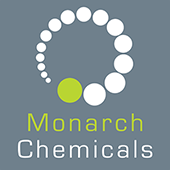What are glycols?
A glycol is an organic chemical compound belonging to the alcohol family. Within the glycol (another terms for diol), molecule, it contains two hydroxyl groups attached to different carbon atoms. Glycols belong in the alcohol group of chemicals.
Although both propylene glycol and ethylene glycol have a large number of applications across a variety of industries and uses including cosmetics and preservatives (propylene glycol) and within the manufacture of resins, inks and polyethylene terephthalate (ethylene glycol) both have a common use within antifreeze and coolant mixes.
What is antifreeze?
Antifreeze is a pure base product - ethylene or propylene glycol. In some formulas a specialised inhibitor is also sometimes added to help protect system metals from corrosion.
The role of antifreeze has a dual purpose - lowering the freezing point of liquid in a cooling system as well as also raising the boiling temperature of water. Through this, an antifreeze solution helps keep cooling systems free flowing and clear of icy build-up during cold weather conditions as well as preventing any issues with over-heating.
What is the difference between propylene glycol and ethylene glycol?
The main difference between propylene glycol and ethylene is the level of toxicity. Propylene glycol has a very low toxicity, which is why it is also found in cosmetics and personal care products, whereas ethylene glycol is poisonous and must be handled with caution to restrict any human or animal exposure.
So why not just use propylene glycol? There are a number of benefits using ethylene glycol over propylene glycol, especially in closed loop systems where risk of contact with food is minimal. For example, freeze point depression is much more effective using ethylene glycol – so more propylene glycol would be required to maintain the same freeze point as ethylene. As well as this, due to the lower viscosity of ethylene glycol it possesses excellent heat transfer properties.
The use of propylene or ethylene glycol depends on the application in hand and the risk of accidental contact with food, potable water or human ingestion. For example, in aeroplane de-icing propylene glycol is used for both removing ice and contaminates from an aeroplane as well as being used during winter and periods of snowfall to actively prevent accumulation of snow and ice. It is also present in a number of supermarket antifreeze products. Whereas ethylene glycol would be used in closed systems and in controlled industrial applications.
Monarch Chemicals supplies both ethylene glycol and propylene glycol as well as the Moncool inhibited glycol range. For more information on selecting the right glycol for your application or formulation please contact us .





